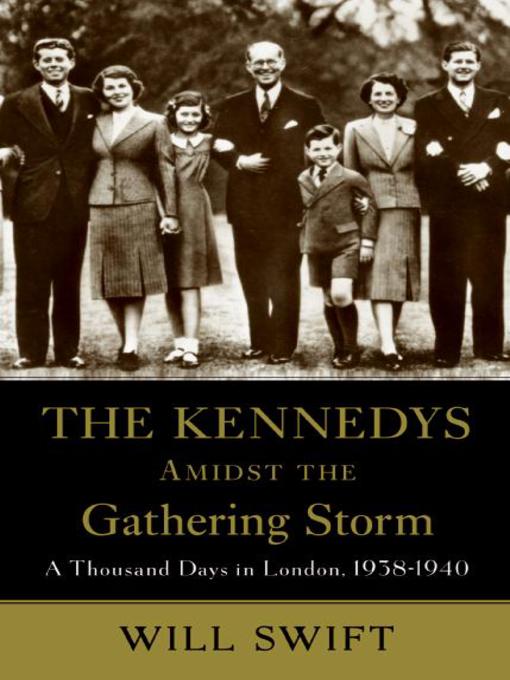
The Kennedys Amidst the Gathering Storm
A Thousand Days in London, 1938-1940
کتاب های مرتبط
- اطلاعات
- نقد و بررسی
- دیدگاه کاربران
نقد و بررسی

February 18, 2008
Clinical psychologist and historian Swift (The Roosevelts and the Royals
) capably documents Joseph P. Kennedy's troubled tenure as American minister to the Court of St. James's, and the experiences of his family during these years, aiming to present a “fair and comprehensive” portrait of a man he says has been caricatured by other historians. But Kennedy's flaws still appear to outweigh his virtues. He proved a problem to FDR almost immediately, casting his lot with such British appeasers as Neville Chamberlain, Nancy Astor and others of the so-called Cliveden set. This earned him the enmity of Winston Churchill and criticism from such administration figures as Henry Morgenthau Jr., Cordell Hull and FDR himself, who had to regularly remind Kennedy that his role was to implement, not define, United States policy. Kennedy lasted just over two years, during which his second eldest son, Jack, became a bestselling author with Why England Slept
. Eldest son Joe Jr. toured war-torn Spain and wrote articles in support of Franco's Fascist forces. And daughter Kathleen (“Kick”) became immersed in aristocratic British nightlife, meeting Billy Cavendish—the marquess of Hartington and a Protestant—to whom she would eventually be married, to her Catholic mother's horror. All this Swift narrates with grace and style. Illus. and photos.

April 1, 2008
In 1938, Franklin D. Roosevelt, to his lasting regret, appointed Joseph Kennedy ambassador to the Court of St. James. Kennedy spent three years in Great Britain, during that uneasy time when it was threatened by the Nazis' European conquests and by American isolationism that left it without financial or military support. Swift ("The Roosevelts and the Royals: Franklin and Eleanor, the King and Queen of England, and the Friendship That Saved History") offers a revisionist portrayal of Kennedy, who became one of the most hated men in England. Swift downplays Kennedy's anti-Semitism by claiming that he did more for Jewish refugees than FDR's other European ambassadors. He explains Kennedy's rants about Great Britain's inevitable defeat by stating that he was echoing, not creating, U.S. sentiment. After his 1940 resignation, he devoted his life to promoting the political careers of sons John, Robert, and Ted, as well as encouraging the professional lives of his other children, who, Swift says, benefited from their father's public-mindedness but were also conflicted by his flaws. This well-told account takes a less harsh view of Joseph Kennedy than Ronald Kessler's "Sins of the Father: Joseph P. Kennedy and the Dynasty He Founded" and Edward J. Renehan Jr.'s "The Kennedys at War, 19371945". Recommended for public libraries.Karl Helicher, Upper Merion Twp. Lib., King of Prussia, PA
Copyright 2008 Library Journal, LLC Used with permission.

May 1, 2008
Swifts subject of Joseph Kennedys ambassadorship to the UK intersects with the authors previous interest in British monarchs (The Roosevelts and the Royals, 2004). Indeed, the social-register aspect of the Kennedy familys navigation of elite London society during their three-year stay, involving debutante presentations for the daughters, political grooming for the sons, and celebrity status for all, receives the authors extensive narrative attention. Readers familiar with the Kennedy story will see portents of the future in Swifts detailing of the activities of Joe Jr., Kathleen, and Jack, especially, while learning why their fathers diplomatic tenure became notorious. Joe Kennedy forgot an ambassadors role, which is to represent the presidents views to the host government; instead, he pressed his own pessimistic predictions of Britains chances against Germany. Amid his chronicles of Kennedys diplomatic indiscretions, Swift strains to be sympathetic, citing FDRs hostility toward Kennedy, but ultimately doesnt challenge historys verdict that as ambassador, Joe failed. Nevertheless, 193840 is a crucial period in the Kennedy epic that Swift covers well for fans of the clans history.(Reprinted with permission of Booklist, copyright 2008, American Library Association.)

























دیدگاه کاربران